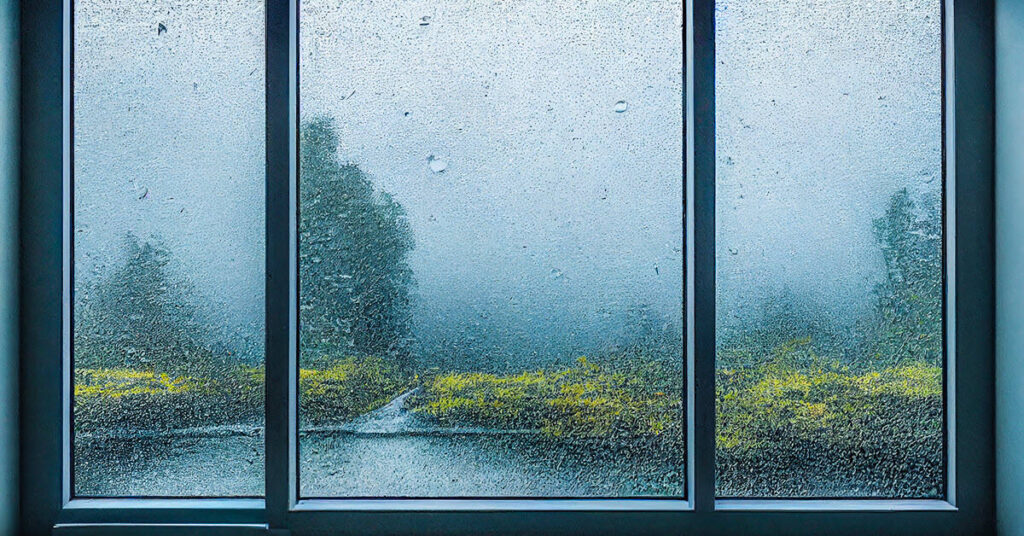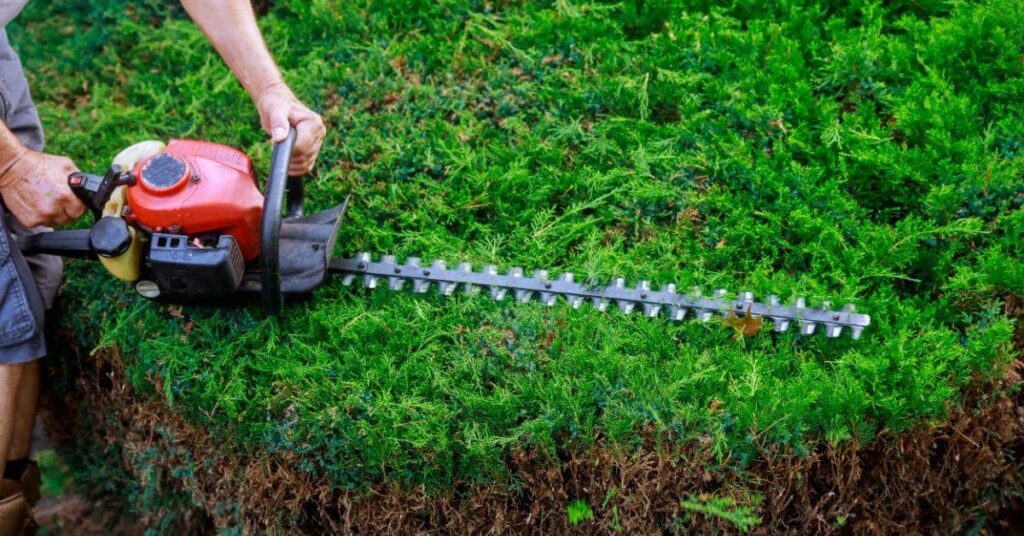Finding the Right Sunglasses for Working Outside
For most of us, safety equipment is not often a consideration for household chores. However, some tasks, such as lawn care, home repairs, and gardening, are fraught with unexpected dangers. For example, while you mow your lawn or trim your hedges, bits of dirt or lawn chemicals can get into your eyes and cause significant damage.
Unfortunately, eye injuries at home are a common occurrence. The American Academy of Ophthalmology indicates that as high as 40% of all eye injuries they treat occur during household work like lawn care, repairs, and gardening. In addition, 90% of the most common injuries could have been prevented if the victims wore protective gear.
The following comprehensive guide will provide all the vital information you need to buy the best sunglasses for landscaping and lawn care.
You could purchase various types of protective eyewear to protect your eyes while you do your landscaping and lawn care. However, the type of protective eyewear you choose will depend on the kind of lawn service you intend to complete, your personal preferences, and your budget.
The three main categories of protective eyewear are safety goggles, protective glasses, and face shields.
Safety Goggles
Safety goggles are a type of protective eyewear that protect your eyes from solid particles, splashes, and eye-irritating fumes, vapors, and mists. Most safety goggles fit tightly around the eyes with the help of suctions and rubber straps that keep them in place as you move.
Safety goggles are either vented or non-vented.
Vented Safety Goggles
Vented safety goggles have holes drilled into the material, thus making them unsuitable for protection against dangerous mists, vapors, or fumes. However, the vents prevent fogging up of the lenses as you breathe, which tends to happen with fully sealed, non-vented goggles.
The venting may be direct or indirect.
Indirect-Vented Safety Goggles
Indirect-vented goggles have angled vents that often face away from the lens to prevent particles from contacting the wearer’s eyes. The user can also adjust the vents according to their needs and preferences.
Unfortunately, indirectly vented goggles may not be reliable for preventing chemical splashes due to the vents. However, the degree of liquid that gets into the eye will depend on the direction in which the vents are angled.
If you angle the vents towards the eyes, the toxic liquid may get to them and cause damage. Therefore, if you’re working with toxic liquids, it may be better to buy non-vented safety goggles.
Direct-Vented Safety Goggles
Direct-vented safety goggles have holes directly under or on the side of the frame. The holes tend to be very small, thus keeping out any debris from reaching the eye. While the glasses may not be suitable for a lab setting, they are helpful in domestic work that yields debris and fine dust particles.
Non-Vented Safety Goggles
Non-vented safety goggles are designed to keep fumes and toxic chemicals away from the eyes. These goggles have a flex seal lining around the frame, thus making them airtight. In addition, the lenses are often made of polycarbonate lens that has visibility in all directions. While the lack of ventilation may impair vision, some non-vented safety goggles come with anti-fog lenses, which eliminate this problem.
Protective Sunglasses
Protective sunglasses use specialized coatings, lenses, and frame designs to keep debris, harmful liquids, and harmful sunlight away from your eyes. The specifications can be adjusted to suit the user’s needs and preferences.
Unfortunately, protective sunglasses do not have the splash or droplet protection provided by safety goggles. Therefore, if you frequently work with lawn chemicals that may get into your eyes, you may need to consider buying safety goggles instead.
Face Shields
Face shields extend from the eyebrows to the chin and protect the entire face. Due to their coverage, the shields offer excellent protection from chemical splashes and large debris. The shield can also be made from UV glass, protecting the wearer from the sun.
For the best protection from face shields, go for an option with crown and chin protection. The shield should also go past the ear to prevent splashes from reaching the eye. However, if your lawn care results in fine dust or debris particles that may get around the shield, consider using safety goggles or safety sunglasses instead.
Characteristics of High-Quality Sunglasses for Landscaping and Lawn Care
Here are some of the features of high-quality sunglasses for landscaping and lawn care.
Comply With Safety Standards
Ensure your safety sunglasses adhere to the standards outlined by an authoritative safety body like American National Standards Institute or the Occupational Safety and Health Administration. These bodies subject any eyewear touted as safety gear to a battery of tests to ensure they perform as the manufacturers claim they do.
ANSI-certified lenses are usually marked as such, thus verifying their authenticity. Furthermore, such lenses are typically fitted in frames that have also undergone rigorous testing. Therefore, buying glasses adhering to the standards outlined by OSHA or ANSI guarantees the safety of your eyes as long as you use the glasses correctly.
Ability To Protect Against All Hazards
All safety sunglasses should be able to fulfill their primary purpose, which is to shield your eyes from debris and UV sunlight. Therefore, before you purchase sunglasses, ensure they are fitted with the lenses and frames to get the job done.
The lenses should be anti-fog to ensure your breathing doesn’t impair your vision. They should also be polarized lenses to block horizontal light, which is common during midday.
It would be best if you also went for photochromic lenses, as they’ll adjust to being darker or lighter according to how bright the sun is. Purchasing sunglasses with all the above specifications will offer all-around protection regardless of the weather.
Full Coverage
Your safety sunglasses are the only barrier between your eyes and a potentially blinding hazard. Therefore, buy sunglasses that will cover your eyes as much as possible. Such glasses have wrap-around frame designs that keep hazards from getting into your eyes at the side. You should also pick sunglasses with tall, wide lenses.
Proper Fit
Ensure that the sunglasses you choose fit your face as snugly as is comfortable. Glasses too tight will squeeze your temples, while roomy frames let the glasses slip while you work, possibly allowing debris to come into contact with your eyes. Try to size your safety eyewear before working, or get a frame with a rubber grip that secures the sunglasses as you work.
Comfort
Comfort is an essential aspect of any pair of safety sunglasses, especially if you’re wearing the glasses for a long time. For comfortable glasses, choose models made with polycarbonate lenses, which are often lighter than glass or plastic lenses. If you order your glasses online and can’t fit them, opt for designs with adjustable nose and side pads to ensure the perfect fit.
Durability
As with all pricey outdoor things, you should ensure that the sunglasses you buy will endure regardless of how you use them. Fortunately, as long as you purchase ANSI-certified sunglasses, you’ll gain the following things:
- Impact-resistant lenses
- Scratch-resistance
- Flame and corrosion-resistance
- Flame-retardance
Keeping all these choices in mind during shopping will ensure you buy high-quality sunglasses that keep your eyes safe for a long time.
Recommended Products
While the above tips will be handy as you shop, below are a few picks that fit all the above criteria that may help you get started in your quest for the best pair of sunglasses for lawn care service.
The 3M Virtua Safety Glasses
The 3M Virtua glasses feature an ANSI-certified polycarbonate lens, which makes them both lightweight and impact-resistant. The lenses also absorb UV rays and protect your eyes from the harsh effects of sunlight.
In addition, the 3M glasses also have a foam gasket around the frame which blocks dust. However, the lenses are anti-fog and thus won’t impair your vision as you work.
Wiley X Gravity
The Wiley X Gravity safety sunglasses are another stellar choice if you’re in the market for the best sunglasses for landscaping and lawn care. You can customize the glasses as much as you want, as almost all the accessories are removable.
The glasses have a facial cavity that blocks debris and dust. They also come with an elastic strap that allows you to wear the glasses like goggles. The lenses are polarized, thus making them ideal for outside work. The wrap-around design offers coverage for the sides of your eyes as well.
NoCry Professional Safety Glasses
The NoCry Professional safety glasses are a lightweight, durable polycarbonate choice that offers 90 to 100% protection from harmful UV rays. The lenses are also scratch-resistant and anti-fogging. These glasses come with adjustable nose and side pads and rubber arms that secure the glasses on your face to enhance the wearer’s comfort. These are some of the best safety glasses on the market.
Spy Optic Logan Wrap Safety Glasses
These glasses merge form and fashion to create stylish, indestructible safety sunglasses. The wrap-around frame is made of impact-resistant and lightweight Grilamid nylon. The frame also comes with a pin-hinge system that grips the temple and stops the glasses from sliding off when in use.
The Spy Optic Logan Wrap safety sunglasses are also small and can be worn under a helmet, making them ideal for biking.
The Oakley Flak Jacket
The Oakley Flak Jacket has polarized plastic lenses that offer 100% UV protection, making them ideal for outdoor work. The ear socks and nose pads are also sweatproof, ensuring the glasses stay in place no matter how much you sweat.
In addition, the glasses are lightweight and comfortable to wear, and the stress-resistant frame keeps the glasses from breaking.
Frequently Asked Questions
Still curious about the best glasses for landscaping and lawn care? Below are answers to a few frequently asked questions that may help shed light on any additional areas of concern.
Should you wear glasses when mowing the lawn?
Yes, you should wear glasses when lawn-mowing. As they cut grass, lawnmowers hurl bits of small debris, which can cause significant damage if they hit your eye at high speeds. You should wear any form of eye protection to prevent this accident from happening.
Can I wear prescription glasses with safety sunglasses?
Yes, you can wear prescription safety glasses with safety goggles. However, you must ensure that the safety sunglasses are properly over prescription glasses without impairing their safety features. Alternatively, you could purchase safety prescription glasses, although they tend to be expensive.
What kind of sunglasses block the sun the best?
The best sunglasses that block the sun are those with UV blocking. The higher the rating indicated, the better the glasses block the sun. The rating goes up to 100% or UV 400.
Which is better? UV or polarized sunglasses?
UV sunglasses are best for blocking the sun’s harmful effects because the lenses are designed to filter UV rays. In contrast, while polarized lenses filter out some UV rays, their primary function is to reduce glare so that you can see more clearly.
Nothing can replace your eye. Once the damage is done, it can never be entirely undone. So do not become part of the eye injury statistics. Instead, invest in your eyes and buy the best sunglasses for landscaping and lawn care.





